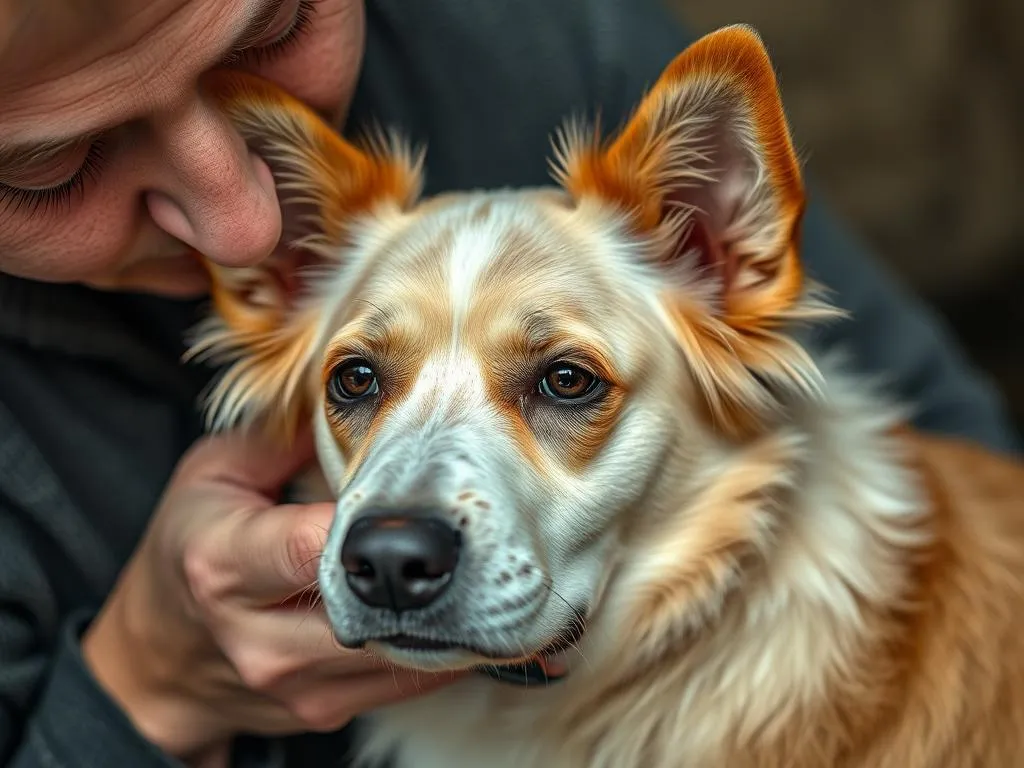
Introduction
Empathy, the ability to understand and share the feelings of others, plays a crucial role in human relationships, fostering connections and promoting emotional well-being. The bond between humans and animals has long been recognized for its emotional benefits, with pet ownership frequently linked to enhanced mental health outcomes. This raises an intriguing question: are pet owners more empathetic than other people? This article delves into the nuances of empathy, the psychological impact of pet ownership, and the evidence surrounding whether pet owners exhibit higher levels of empathy than non-pet owners.
Understanding Empathy
What is Empathy?
Empathy can be broadly divided into two categories: cognitive and emotional empathy. Cognitive empathy refers to the ability to recognize and understand another person’s emotions and perspectives, while emotional empathy involves the capacity to physically feel what others feel. Both types are essential for effective social interaction and the development of meaningful relationships, enabling individuals to respond compassionately to the needs and emotions of others.
Measuring Empathy
Measuring empathy can be complex, as it often requires subjective assessments. The Empathy Quotient (EQ) is a widely used tool that quantifies an individual’s empathetic tendencies. Other scales, such as the Interpersonal Reactivity Index (IRI), also provide insights into different facets of empathy. Various factors, including upbringing, personality traits, and life experiences, can significantly influence an individual’s empathy levels, making it a multifaceted attribute.
The Role of Pets in Human Lives
The Psychological Benefits of Pet Ownership
Owning a pet offers numerous psychological benefits, significantly contributing to emotional support and companionship. Pets can alleviate feelings of loneliness and provide unconditional love, which can enhance emotional resilience. Studies have shown that interacting with pets can lead to a reduction in stress and anxiety, promoting a sense of calm and stability in their owners.
Pets as Catalysts for Social Interaction
Pets also serve as social facilitators, encouraging interactions among people. Dog owners, for instance, often find themselves engaging with fellow dog owners in parks or during walks, creating a sense of community. Pet-related activities, such as dog training classes or community pet events, foster social bonds and encourage networking among pet enthusiasts, furthering the idea that pet ownership can enhance social empathy.
Research on Empathy and Pet Ownership
Studies Supporting Higher Empathy in Pet Owners
Numerous studies suggest that pet owners may indeed be more empathetic than their non-pet owning counterparts. Research indicates that individuals with pets often score higher on empathy scales, demonstrating greater sensitivity towards both animals and humans. For instance, a study published in the Journal of Personality and Social Psychology found that pet owners displayed more altruistic behaviors and were more likely to engage in prosocial activities, such as volunteering or helping others in need.
Counterarguments and Alternative Perspectives
Contrastingly, some research indicates no significant difference in empathy levels between pet owners and non-pet owners. Factors such as personality traits, life experiences, and social environments could contribute more to an individual’s empathetic tendencies than pet ownership itself. For instance, individuals who are inherently more nurturing or socially aware may be drawn to pet ownership, rather than the reverse being true. Thus, while there is evidence supporting the notion that pet owners are more empathetic, it is essential to consider the broader context of empathy development.
The Impact of Different Types of Pets
Dogs vs. Cats: A Comparative Analysis
The type of pet one owns may also influence levels of empathy. Dog owners, known for their active engagement with their pets, often report higher levels of emotional connection and empathy compared to cat owners. Dogs require regular exercise and social interaction, which can foster a deeper bond between the owner and the pet. Additionally, the training and care involved in dog ownership may work to enhance an individual’s capacity for empathy through increased responsibility and awareness of another’s needs.
In contrast, cat owners often experience different psychological benefits. Cats are more independent and may provide emotional comfort without demanding as much interaction. While studies suggest that cat owners can also exhibit high levels of empathy, the nature of their bond may differ, leaning more towards emotional understanding rather than active engagement.
Other Types of Pets and Empathy
The bond between humans and pets is not limited to cats and dogs. Owners of birds, reptiles, and small mammals can also experience unique empathetic connections with their pets. For instance, owners of birds often develop strong emotional bonds through vocal communication and playful interaction. Similarly, small mammals like rabbits and guinea pigs can foster feelings of compassion and nurturing in their owners. While research specifically focusing on these pets is less prevalent, the emotional connections can be profound, contributing to the overall understanding of whether pet owners are more empathetic.
The Broader Implications of Pet Ownership on Society
Pet Ownership and Community Well-being
The implications of pet ownership extend beyond the individual level, affecting community well-being. More empathetic individuals tend to contribute positively to their communities, fostering environments of cooperation and support. Programs that utilize pets for therapy, such as Animal-Assisted Therapy (AAT), have been shown to enhance emotional recovery in various settings, including hospitals and schools. These initiatives highlight the potential of pets to bridge emotional gaps and promote healing in society.
Potential Risks of Overemphasizing Pet Ownership
However, it is essential to consider the potential risks associated with an overemphasis on pet ownership. Some individuals may develop an emotional dependency on their pets, which can lead to challenges in forming human relationships. Moreover, the narrative that only pet owners can be empathetic may inadvertently marginalize those who do not own pets, suggesting that empathy is contingent upon pet ownership. It’s crucial to recognize that empathy can manifest in various forms, and individuals without pets can also exhibit high levels of emotional understanding and compassion.
Practical Tips for Enhancing Empathy through Pet Ownership
Choosing the Right Pet for Your Lifestyle
Selecting a pet that aligns with your lifestyle and values can enhance your empathetic experience. Consider factors such as the amount of time you can dedicate, the level of interaction you desire, and your living environment. For example, if you seek a highly interactive and engaging relationship, a dog may be a suitable choice. Alternatively, if you prefer a less demanding pet, a cat or small mammal could be more appropriate.
Engaging in Activities that Foster Empathy
Engaging in activities with pets can significantly enhance empathy levels. Volunteering at local animal shelters, participating in pet therapy programs, or organizing community pet events can promote understanding and compassion towards both animals and fellow humans. These experiences can help pet owners develop a greater sense of empathy, not only towards their pets but also within their communities.
Conclusion
In exploring the relationship between pet ownership and empathy, the evidence suggests that pet owners may be more empathetic than other people, although this is not a universal truth. The psychological benefits of pet ownership, combined with the social interactions they foster, contribute to increased empathy levels in many individuals. However, it is imperative to acknowledge the complexities of empathy and the myriad factors that influence it beyond pet ownership.
Ultimately, empathy remains an invaluable trait that enriches our personal lives and strengthens our communities. Reflecting on our experiences with pets can help us understand and cultivate empathy in ourselves and others, reinforcing the notion that compassion and understanding are essential for a harmonious society.









